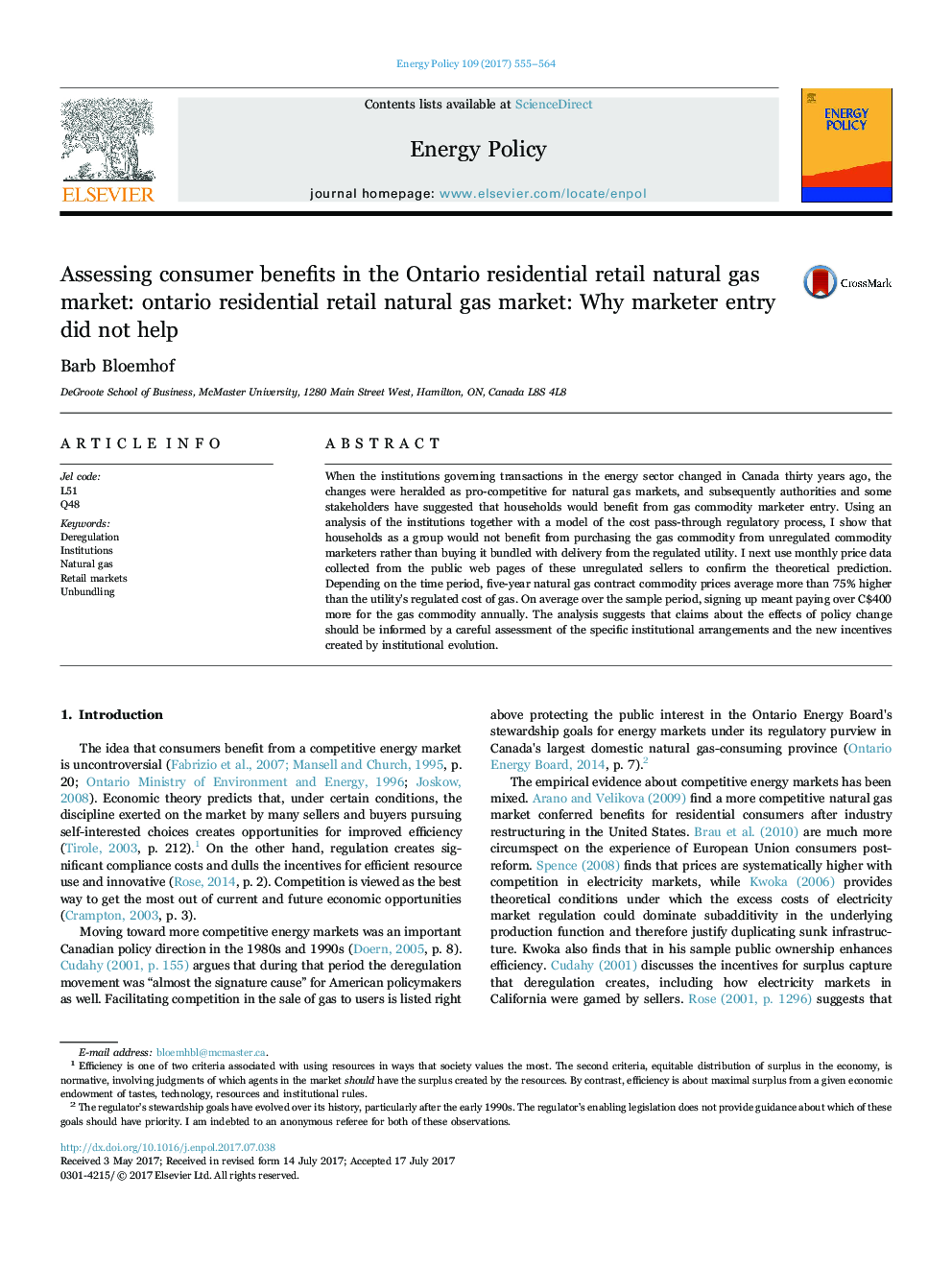| Article ID | Journal | Published Year | Pages | File Type |
|---|---|---|---|---|
| 5105702 | Energy Policy | 2017 | 10 Pages |
Abstract
When the institutions governing transactions in the energy sector changed in Canada thirty years ago, the changes were heralded as pro-competitive for natural gas markets, and subsequently authorities and some stakeholders have suggested that households would benefit from gas commodity marketer entry. Using an analysis of the institutions together with a model of the cost pass-through regulatory process, I show that households as a group would not benefit from purchasing the gas commodity from unregulated commodity marketers rather than buying it bundled with delivery from the regulated utility. I next use monthly price data collected from the public web pages of these unregulated sellers to confirm the theoretical prediction. Depending on the time period, five-year natural gas contract commodity prices average more than 75% higher than the utility's regulated cost of gas. On average over the sample period, signing up meant paying over C$400 more for the gas commodity annually. The analysis suggests that claims about the effects of policy change should be informed by a careful assessment of the specific institutional arrangements and the new incentives created by institutional evolution.
Related Topics
Physical Sciences and Engineering
Energy
Energy Engineering and Power Technology
Authors
Barb Bloemhof,
